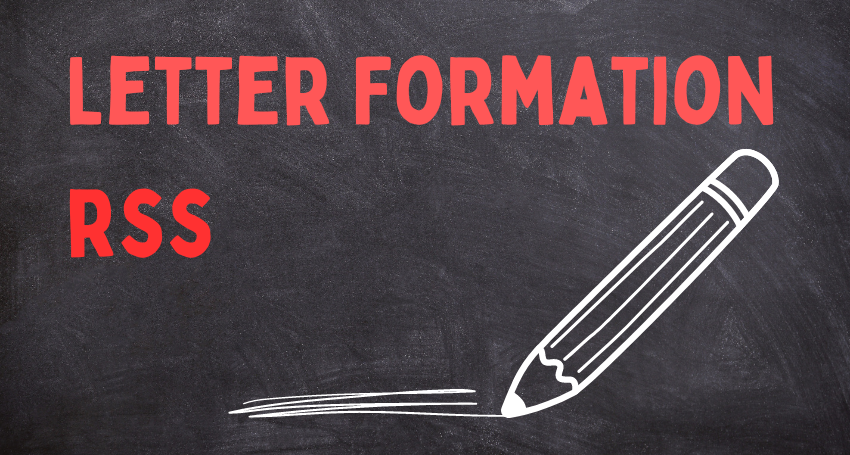RSS Letter No 0876, or Rashtriya Swayamsevak Sangh, has been a huge pressure in shaping India’s socio-political panorama. Founded in 1925, RSS has consistently motivated national discourse, lifestyle, and politics. One of the methods it communicates its ideologies and updates is through its diverse publications, including letters. RSS Letter No. 0876 is a document that encapsulates a number of topics pertinent to the agency’s views and activities. This article aims to offer a humanized, plagiarism-unfastened evaluation of RSS Letter No. 0876, diving into its key themes, historical context, and modern relevance.
Historical Context
To apprehend the importance of RSS Letter No. 0876, it’s far crucial to grasp the historical backdrop in opposition to which it was written. RSS became set up for the duration of the British colonial period in India, with the goal of selling Hindu values and lifestyle. Over the decades, it has grown into a large organization with a big selection of affiliated bodies running in one of a kind sectors, from education to health.
The letter, in all likelihood part of the normal communication in the corporation, displays the ongoing efforts of RSS to live linked with its individuals and associates. It serves as a medium to disseminate facts, proportion achievements, and outline future plans.

Key Themes of RSS Letter No. 0876
Promotion of Cultural Values
One of the ordinary themes in RSS communications is the merchandising of Hindu cultural values. RSS Letter No. 0876 is not any specific, emphasizing the want to hold and propagate traditional Indian culture. This includes promoting fairs, rituals, and languages that shape the bedrock of India’s various heritage.
Social Welfare Initiatives
RSS has always placed a sturdy emphasis on social welfare. The letter info diverse tasks undertaken via the organization to uplift marginalized communities. This consists of academic packages, healthcare services, and vocational education aimed toward empowering the underprivileged sections of society.
National Security and Patriotism
National security is a cornerstone of RSS ideology. The letter discusses the importance of keeping vigilance and fostering a feel of patriotism among a number of the residents. This is often coupled with narratives around self-reliance and resilience, encouraging participants to contribute to country wide security in numerous capacities.
Political Engagement
While RSS is officially a non-political entity, its effect on Indian politics is simple. The letter subtly references the political weather, urging members to live knowledgeable and engaged. This includes helping guidelines and leaders that align with the enterprise’s imaginative and prescient for India.
Educational Outreach
Education is an important area of recognition for RSS. The letter outlines numerous academic outreach applications designed to instill moral values and countrywide pride in most teens. This includes the status quo of colleges, scholarships, and educational workshops.

Contemporary Relevance
In trendy context, RSS Letter No. 0876 holds full-size relevance. India is at a juncture in which cultural identification, social cohesion, and national security are hotly debated subjects. The themes discussed in the letter resonate with modern issues, reflecting the agency’s ongoing efforts to shape the narrative.
Cultural Identity and Preservation
As globalization intensifies, the want to preserve cultural identification will become extra urgent. The letter’s emphasis on cultural values aligns with the broader discourse on protecting and promoting indigenous cultures within the face of world homogenization.
Social Welfare and Inclusivity
In a hastily developing kingdom like India, addressing social inequalities is critical. The social welfare tasks highlighted within the letter underscore RSS’s commitment to inclusive increase, echoing the authorities’ consciousness on social welfare schemes.
National Security
With worldwide geopolitical dynamics constantly evolving, country wide security stays a pinnacle priority. The letter’s name for vigilance and patriotism is mainly applicable in the latest safety environment, wherein unconventional threats such as cyber battle and terrorism are ordinary.
Political Influence
The diffused political undertones in the letter replicate RSS’s enduring influence on Indian politics. As the political panorama evolves, the organization’s function in shaping policies and political discourse is still vast.
Educational Reforms
Education is a powerful tool for state-constructing. The letter’s cognizance on instructional outreach aligns with the continued academic reforms in India aimed at making education greater holistic and cost-primarily based.

Critiques and Controversies
While RSS Letter No. 0876 outlines numerous positive tasks, it is vital to acknowledge the critiques and controversies surrounding RSS. Critics argue that the employer’s emphasis on Hindu values can once in a while alienate minority communities. There are also issues about the overlap between RSS’s socio-cultural activities and its political influence, which some view as blurring the traces among faith and politics.
Moreover, the organization’s stance on positive social problems, which include caste and gender, has been a topic of dialogue. While RSS claims to sell social harmony and equality, critics point out instances where its moves or statements were perceived as regressive.
Faqs
What is RSS Letter No. 0876?
RSS Letter No. 0876 is a report within the Rashtriya Swayamsevak Sangh (RSS), a socio-cultural enterprise in India. It serves as a verbal exchange tool to update participants and associates on various organizational sports, ideologies, and future plans.
What are the key themes discussed in RSS Letter No. 0876?
The letter discusses subject matters along with the promotion of cultural values, social welfare initiatives, national protection, political engagement (despite being formally non-political), and educational outreach. These themes mirror RSS’s middle ideologies and activities.
Why is RSS Letter No. 0876 applicable today?
The letter stays relevant due to its discussion of problems like cultural identification upkeep, social welfare efforts, countrywide safety worries, political impact on (in a roundabout way), and educational reforms—all of which are pertinent in modern Indian society.
What controversies or criticisms surround RSS, as cited inside the article?
Critics argue that RSS’s emphasis on Hindu cultural values can once in a while marginalize minority communities. There also are issues about the organization’s affect on Indian politics and its stance on social issues like caste and gender equality, that have sparked debates.
What is the conclusion drawn from analyzing RSS Letter No. 0876?
The conclusion highlights RSS’s massive function in shaping India’s socio-political panorama regardless of controversies. It emphasizes the organization’s commitment to cultural maintenance, social welfare, national security, and schooling, whilst acknowledging ongoing opinions and debates surrounding its activities.
Conclusion
RSS Letter No. 0876 offers a complete assessment of the organization’s ongoing efforts and future plans. It encapsulates the center topics of cultural preservation, social welfare, country wide safety, political engagement, and academic outreach. In doing so, it gives insights into RSS’s imaginative and prescient for India and its techniques for attaining it.
Despite the reviews and controversies, RSS continues to play a pivotal function in shaping India’s socio-political panorama. The letter serves as a testament to the business enterprise’s enduring impact and its commitment to its foundational values. As India navigates the complexities of the 21st century, the subject matters highlighted in RSS Letter No. 0876 will probably hold to resonate, reflecting the continuing interaction between lifestyle and modernity, inclusion and exclusivity, and national delight and global engagement.
